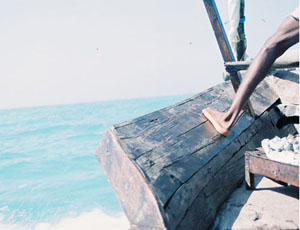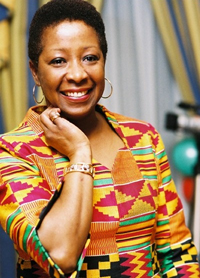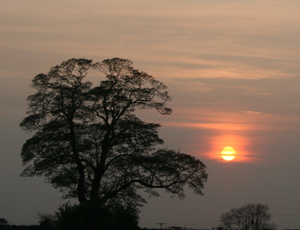










Jack Mapanje
Niyi Osundare
Lauri Kubuitsile
Peter Addo
N.Casely-Hayford
Kola Boof
Courttia Newland
Nii Kwei Parkes
Eusebius
McKaiser
Anietie Isong
Dike
Chukwumerije
Chinelo Achebe-
Ejeyueitche
Akin Adesokan
Tolu Ogunlesi
Adaobi Tricia
Nwaubani
Eghosa Imasuen
Mpalive Msiska
Roi Kwabena
Emmanuel
Sigauke
Nnedi Okoroafor-
Mbachu
George E. Clarke
Kimyia Varzi
Obemata
Uche Nduka
Amatoritsero Ede
Obododimma Oha
Leila Aboulela
James Whyle
Koye Oyedeji
Obiwu
Becky Clarke
Nike Adesuyi
Derek Petersen
Afam Akeh
Olutola Ositelu
V. Ehikhamenor
Molara Wood
Chime Hilary
Wumi Raji
Chuma Nwokolo
Ali Mazrui
controversy at Okigbo Conference |
|||||||||||||||||||||||||||||||||||||||||||
| Lessing
wins the Nobel |
|||||||||||||||||||||||||||||||||||||||||||
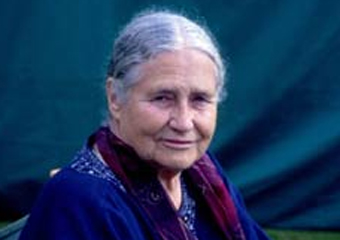 |
Doris Lessing. A major name in the Literatures of Africa and Britain is the 2007 winner of the Nobel Prize for Literature. The Swedish Academy described Lessing, born in Iran, and, at 87 years old and nearly 88, the oldest winner of the Literature Nobel, as a writer “who with scepticism, fire and visionary power has subjected a divided civilisation to scrutiny”. Lessing has lived most of her life in Britain but has an imaginary deeply informed by experience of, and concern with, Africa, having had an African upbringing in the then Southern Rhodesia (Zimbabwe) after her parents moved from Iran (then Persia) in 1925. The African landscape and its political and cultural features and history are significantly represented in the subjects, characters and plots of the Lessing oeuvre, especially in notable works like The Grass is Singing (1950, a recommended text for many years in African Literature classes within the continent), her autobiographical Children of Violence series (!952-69), The Golden Notebook (1962, an iconic work in feminist circles) and her epic novel, Mara and Dann (1999 and 2005). Doris Lessing has been a noted voice from the intellectual Left, with once Marxist beliefs and radical views on racial segregation, women in the world, any kind of political or social oppression, and the struggle against censorship, as in the experience of D.H. Lawrence. Other significant names in African Literature honoured with the Nobel Prize for their writings are Wole Soyinka (Nigeria, 1986), Naguib Mahfouz (Egypt), Nadine Gordimer (South Africa) and J. M. Coetzee (South Africa). |
||||||||||||||||||||||||||||||||||||||||||
| Ali Mazrui controversy at Okigbo Conference | |||||||||||||||||||||||||||||||||||||||||||
| As scheduled, the International Conference on the Life and Poetry of Christopher Okigbo (1932-67) was held at the University of Massachusetts, Boston. Jointly presented by Boston University, Havard University, Wellesley College and the University of Massachusetts, the conference was in honour of a poet much imitated, still the only poet with a genuine transnational mythical persona and cult following in African poetry. Fifty years after his early death in the Nigerian Civil War, the romance of Okigbo continues unabated among the informed in African poetry, with new poets being drawn to his life and works and new poems being dedicated to him. Although he issued out his work in several publications and revised them many times, Okigbo’s enduring reputation rests on the one final volume of poems collected in the book, Labyrinths. Ali Mazrui’s disputed scholarly intervention at the conference followed earlier addresses by the acclaimed novelist Chinua Achebe and Nobel Literature laureate Wole Soyinka. Mazrui spoke on ‘The Muse and the Matyr: Christopher Okigbo in Comparative Perspective,’ in which he sought to provide a theoretical basis for his long-held opposition to Okigbo’s involvement as combatant, leading to his death, in the Nigerian Civil War (also known as the Biafran War). Many at were appalled at what they saw as the unflattering portrayal of the poet-hero by Mazrui, or enraged by the fact that he showed insensitivity in doing so at an international anniversary celebration of Okigbo at which the Okigbo family was present – and others too who, being writers and scholars like Okigbo, had been moved by the same urgent sense of personal and communal survival to leave their writing or the academy and enlist in the doomed Biafran cause, some of them losing close family and friends in the conflict. Mazrui was strongly challenged after his paper by critics at the conference not only for his perspective and alleged insensitivity, but also on the validity of his theoretical analysis and conclusions. Ali Mazrui is one of the more controversial figures in African cultural studies, having previously been involved in well publicised personal and ideological disputes with such notable others as Wole Soyinka, Abiola Irele, Biodun Jeyifo and Henry Louis Gates Jr. At the conference were international scholars, journalists, artists, contemporaries and critics of Okigbo, including Chinua Achebe, Wole Soyinka, Ali Mazrui, Herbert Ekwe-Ekwe, Chukwuma Azuonye (conference convener), other noted writers like the South African Dennis Brutus, Chimamanda Adichie and members of the Okigbo family, including his daughter, Oby Okigbo, an artist. Apart from Dennis Brutus, Michael Echeruo, Esiaba Irobi and Obi Nwakanma were among participating poets in the special readings from Okigbo and other works organised for the conference. There were also conference papers and personal tributes from Gerald Moore, Obododimma Oha, Catherine Acholonu, Nyong J. Udoeyop, Bede Okigbo, Isidore Dialla, Helen Chukwuma and Garcia Ramirez. In 1978, Don’t Let Him Die: An Anthology
of Memorial Poems for Christopher Okigbo, edited by Chinua Achebe
and Dubem Okafor, was published. But even before then, and certainly
after, the work and literary reputation of Okigbo as the quintessential
poet’s poet has attracted many writers and critics. Some publications
reflecting this interest are The Trial of Christopher Okigbo (Ali
Mazrui, 1971), Christopher Okigbo: Collected Poems (Adewale Maja-Pearce,
ed., 1978), Christopher Okigbo: The Poet of Destiny (Emmanuel Obiechina,
1980) and Donatus Nwoga’s edited 1983 volume, Critical Perspectives
on the Poetry of Christopher Okigbo. Okigbo enthusiasts everywhere
will soon be able to read a biography of Christopher Okigbo by the
poet Obi Nwakanma, and some of his other writings have been collected
for publication by Professor Azuonye. There are many other books
of poetry or criticism which focus in part on Okigbo’s poetry,
or collect some of his poems. He was born in Ojoto, Nigeria, August
16, 1932. The International Conference has ended with a renewed
challenge to publishers, scholars and fund-makers on the need to
work together in the interest of the legacy of Christopher Okigbo.
Some of this enduring work will be founded or supported by The Christopher
Okigbo Foundation. |
|||||||||||||||||||||||||||||||||||||||||||
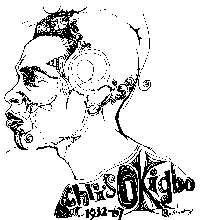 |
|||||||||||||||||||||||||||||||||||||||||||
art:
Obiora Udechukwu |
|||||||||||||||||||||||||||||||||||||||||||
|
Dame Anita
Roddick, a woman whom British Prime Minister Gordon Brown described
as “one of the country’s true pioneers,” was also
a true supporter of African causes, including writers in distress.
She died, 10th September 2007, after suffering a brain haemorrhage,
survived by her husband, Gordon, and two daughters, Sam and Justine,
who were with her when she died. Body Shop, the well-known ethical
cosmetics company, which she established in 1976, had recently been
taken over the French cosmetics group, L’Oreal, in a deal
that further confirmed Dame Anita as one of Britain’s wealthiest
women. But she was also noted for giving away much of that fabulous
wealth, personally getting involved in public demonstrations and
championing fair trade, human rights and green causes. On immigration
matters, she never forgot her own Italian immigrant origins, and
was a great help to Amnesty International and other personal and
community rights groups such as Reprieve (against the death penalty),
Greenpeace (environmental rights) and Body and Soul, the support
group for HIV and AIDS sufferers which she helped to establish.
She acted with much courtesy and understanding towards African writers
and rights campaigners who sought her support for various political
and cultural interests, providing what assistance she could. She
was personally involved in the campaign to free the Nigerian writer,
Ken Saro Wiwa, who was hanged by a despotic Nigerian military government.
The founder of Body Shop was also involved with the struggles for
racial equality, economic justice, political independence in Africa,
as a leading voice of the 1980s international anti-apartheid campaigns.
|
||||||||||||||||||||||||||||||||||||||||||
| To Top | |||||||||||||||||||||||||||||||||||||||||||
| Slavery Museum Opens in Liverpool | |||||||||||||||||||||||||||||||||||||||||||
In the UK, the year-long activities marking the bicentenary of the Abolition of Slavery Act has continued with the recent opening of an International Slavery Museum in Liverpool, one of the three UK cities with a historical notoriety as leading slave dealing ports, others being London and Bristol. The day the Museum opened, 23 August 2007, was also declared the Slavery Remembrance Day by authorities in Liverpool. It commemorates an earlier date in history when enslaved Africans in the island of St Domingo (now Haiti and the Dominican Republic) rose in successful rebellion against their captivity. The new International Slavery Museum is located in the Liverpool National Museums, but will mostly operate as an independent unit. The International Slavery Museum intends to feature displays on all aspects of the trade in human lives, including exhibitions on the origins of the trade, details on its business operations and its enduring consequences for all, not ignoring its contributions to the industrial revolution. A Centre for the Study of International Slavery has been established within the Museum, in cooperation with the University of Liverpool. It will offer an MA in Atlantic History: Slavery, Race and Colonialism, and also support other graduate research studies, organising interdisciplinary conferences and workshops. This academic centre aims to establish a slavery research network with related scholarship centres and scholars in Africa, the Caribbean, Latin America, Europe and the United States. A wall of honour has been constructed for the permanent
display at the Museum of information on the greatest achievers in
black history. There are about seventy-six names on display but
the Museum authorities intend to add to their list. Olaudah Equiano,
Muhammad Ali, Wole Soyinka, Derek Walcott, Steve Biko, Nelson Mandela,
Bob Marley, Oprah Winfrey, Toni Morrison, John Conteh, Sojourner
Truth, Martin Luther King Jr, Frantz Fanon and Kwame Nkrumah are
some of the names already on the list. Richard Benjamin was chairman
of the committee that established the Greatest Black Achievers list.
He offered information on the making of the list: “Our main
criterion was to make sure we got a real mix.” And: “We
are hoping that visitors will make suggestions. We could have someone
like Lewis Hamilton (the most outstanding Grand Prix rookie driver
in history) up there soon.” He hopes that visitors “will
learn about people they don’t recognise,” and that the
list will fight racism and challenge stereotypical views. We want
it to highlight the resistance of the African people and show that
they were not passive in the slave trade.” For the complete
76 names of the Greatest Black Achievers list as recorded in African
Writing, click here.
|
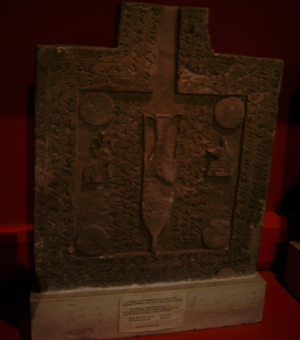 |
||||||||||||||||||||||||||||||||||||||||||
A
record of offerings to an Emperor from antiquity; The Sudan National Musuem, Khartoum |
|||||||||||||||||||||||||||||||||||||||||||
| To Top | |||||||||||||||||||||||||||||||||||||||||||
|
Commonword, the UK-based cultural organisation, is hosting its 4th Black Writers and Publishers Conference in Manchester, 13 October 2007. Presented as “an opportunity for black writers, and readers of black writing, to meet and have dialogue with each other and some of the major figures in the poetry and fiction publishing world.” The conference is especially relevant to new and aspiring writers: “All writers face difficulties in getting their work published and produced, but for African, Asian, Caribbean and Chinese writers in the UK, there are also issues of control and representation.” There will be seminar and other discussion opportunities on particular subject areas, with the panel drawn from experts in the field. Regarding poetry, the discussions will centre on the difficulties experienced by ‘Black’ poets in finding UK publishers for their works, a situation contrary to the success black and other minority poets have had in performance poetry. Pepal Tree Press, Flippedeye, 57 Productions, and Salt Publishing will be included in the panel for the poetry discussions. There will also be a poets’ representative, Shamshad Khan. There are various issues for discussion by the
fiction panel, mostly dealing with the opportunities and challenges
presented by the contemporary diversification of publishing media,
and the challenge of publishing fiction from black and other minority
ethnic communities. Comma Press, Ayebia Clarke Literary Agency and
Publishing Ltd, Tamarind Press, and Suitcase Press will be joined
in the discussions by writers’ representative, Karline Smith.
Contact Theatre, Oxford Road, Manchester, is venue for the conference,
which will also feature spoken word performances hosted by Linton
Kwesi Johnson, with support from the acclaimed Speakeasy band. |
||||||||||||||||||||||||||||||||||||||||||
| To Top | |||||||||||||||||||||||||||||||||||||||||||
| The 11th Poetry Africa, Durban | |||||||||||||||||||||||||||||||||||||||||||
Twenty poets from ten different countries will be in South Africa, from 1 – 6 October, 2007, for the International Poetry Festival Durban, also known as Poetry Africa. Introductory pre-festival performances by some participants are also planned for 29 September at the Flavours of Durban event and at the Awesome Africa Music Festival at Midmar Dam, 30 September. The University of KwaZulu-Natal’s Centre for Creative Arts is the host for Poetry Africa and the actual events of the festival will take place at its Elizabeth Sneddon Theatre and the BAT Centre, Durban. Emphasis is on performance at this 11th festival, with musician and poet, Danyel Waro, and his group of Reunion Islanders expected to play as a special attraction for visitors to the festival. Other striking invitations include spoken word maestro, Oni the Haitian Sensation, French Palestinian writer, theatre and film director/producer Nathalie Handal. Three outstanding performance poets from Zimbabwe
have been invited to feature in the special festival focus on that
country’s poetry, titled, ‘Hello Zimbabwe’. They
are “Toyi-Toyi Poetry” specialist, Comrade Fatso, the
mbira instrument player, Chinwoniso, winner of the UNESCO Prize
for Arts and a kora instrument Best Female Vocals of Africa Awards
nominee. The third Zimbabwean poet-performer is Chikure Chikure,
possibly the most accomplished, with three award-winning volumes
of poetry. But the 11th Poetry Africa will also feature other notable
poets like Ari Sitas, Kobus Moolman, Dennis Brutus and Keorapetse
Kgositsile, the South African Poet Laureatte, who will all be appearing
as special guests. There will be poetry book launches by Gail Dendy,
Vonani Bila, Kobus Moolman, Haidee Kruger and Napo Masheane. |
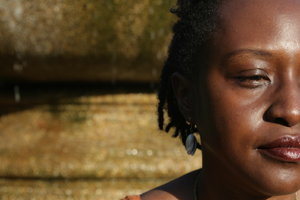 |
||||||||||||||||||||||||||||||||||||||||||
| photo Kimya Varzi. Doreen Baingana | |||||||||||||||||||||||||||||||||||||||||||
| To Top | |||||||||||||||||||||||||||||||||||||||||||
|
The Association
of Nigerian Authors (ANA) holds its 26th International Conference
from 4 November 2007. Members are expected to arrive the South Eastern
city of Owerri from all parts of Nigeria, and even from outside
the country, where many Nigerian writers and critics now live and
work. It is expected that Professor Kole Omotosho, a Nigerian scholar
in South Africa, and author of the fact-fiction work, Just
Before Dawn, will address the writers. Professor Omotosho
has also been a President of the Association. The current President,
Wale Okediran, is a novelist, medical doctor and former member of
Nigeria’s House of Representatives. Conference time for ANA
is also often election time for vacant or challenged positions in
the organisation’s leadership, and the exciting time for revealing
winners of its highly contested year-long literary competitions.
The Owerri conference in November comes after yet
another Ist October independence anniversary. Modern Nigerian writing
in English was already flourishing before that first October 1 in
1960, when colonial rule by Britain ended, with Things Fall Apart,
Chinua Achebe’s great novel of the African colonial experience
already published in 1958. Since then there has been a civil war,
with its still growing body of works, and Wole Soyinka, playwright,
poet, memoirist and noted critic of oppressive and corrupt Nigerian
governments, has become the representative face of Nigerian success
as the first African to win the Nobel Prize for Literature. With
the new or younger writers also increasingly successful, it would
indeed seem that on this occasion of reflection on Nigeria’s
47 years of self-rule it is to the Literature the ailing national
politics must of necessity turn for inspiration and explanation..
|
||||||||||||||||||||||||||||||||||||||||||
| To Top | |||||||||||||||||||||||||||||||||||||||||||
